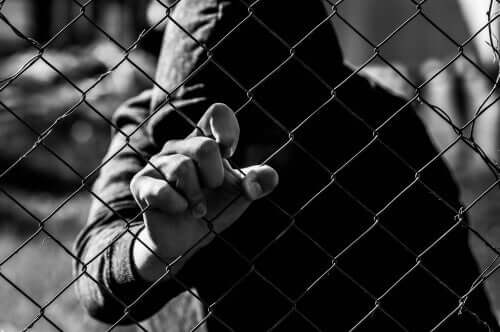The psychosocial characteristics of prejudice influence the radicalization process, the increase in radicalization in societies is more prevalent in critical situations derived from ideological motivations of different kinds (Moyano-Pacheco, 2017).
Today, risk perception has been amplified by the media impact of terrorism and political violence.
- For the social sciences.
- Understanding the phenomenon of radicalization and terrorism is a prerequisite for the prevention of violence.
- But also for the reintegration of people who have fallen under the influence of violent groups.
- Who generally focus their recruitment and recruitment dynamics on vulnerable people.
Radicalization is a complex and multidimensional process in which countless variables can be involved as contributing factors, so the analysis of this process must be carried out taking into account the intersection of various psychosocial variables (Kruglanski et al. , 2014).
From a psychological perspective, the question of the factors influencing the radicalization process aims to answer why a person adopts political or religious beliefs that are not shared by the majority of the population.
“The discursive redemption of an affirmation of truth leads to rational acceptability, not truth. “J. J. Habermas-
The concept of radicalization can be defined as a process in which cognitions, emotions and violent behaviors are increased in support of intergroup conflicts, usually based on an ideology that provides coverage (Moyano and Trujillo, 2013).
Everything seems to indicate that radicalization is a pre-trial step in the practice of violent acts, although, of course, not all radicals will actually carry them out, implying that, while radicalization is supposed to be a necessary first step, radicalization does not necessarily involve violence.
It can be said that radicalization is a process, more than a state, in this process play a very important role the psychosocial factors (Moyano-Pacheco, 2017), at present, both in the media and in secular knowledge, various myths that must be demolished are widespread.
One is the existence of a standardized profile of radicals and terrorists; after systematically reviewing the available biography, it can be concluded that there are a variety of personal, educational and socioeconomic profiles (Victoroff, 2005).
Everything suggests that, in the analysis of radicalization and terrorism, it is more productive to focus on psychosocial processes than to focus on the profiles of authors (Moyano and Trujillo, 2013).
“Sometimes silence is the worst lie. “-Miguel de Unamuno-
Prejudice can take different forms and manifestations. You can also have different sources depending on the group you interact with. Gordon Allport defines prejudice based on psychosocial definitions such as antipathy or hostility based on flawed or uncompromising generalization.
The explanation of distortions caused by prejudice, usually against members of other groups, refers to the strength of the need for social belonging. Commitment and emotional involvement with the group you belong to leads you to invest in your own identity.
The image we give ourselves is linked to that of your group, and this leads to defending your values. Therefore, we would encourage ourselves to differentiate and exclude those who are not.
Prejudices and stereotypes feed on social discourse and rhetoric, in this way, they serve positions of power in regulating relations between groups that face each other in specific social and political situations.
Stereotypes of delgitimation lead a group to be morally excluded from the field of acceptable norms and values. This leads to dehumanization that allows the expression of contempt and fear and justifies violence and prejudices inflicted.
In the dominant groups there is an accentuation of the particularities and a differentiation of identities, while the members of the dominated groups would show a tendency to homogenization and the definition of social identity, depending on the characteristics attributed to their group.
This leads us to consider the effects of social categorization and, in general, prejudices and stereotypes about who are the objective, which by legitimizing violence against minority groups, they in turn can respond more violently to majority groups.
The psychosocial characteristics of prejudices and our cognitive processes tend to develop stereotypes about the members of the exogroup, to mitigate this, with our rationality, we must focus on the vision of each person, not the group to which they belong.
Otherwise, the corresponding stereotypes are more likely to accompany us. In the official sphere, a line of protection must be drawn up for minorities, since, as the cited articles show, these are the most likely targets of this type of violence.
“Irresponsibility for damage is part of the essence of terrorism. ” — J. J. Habermas-

